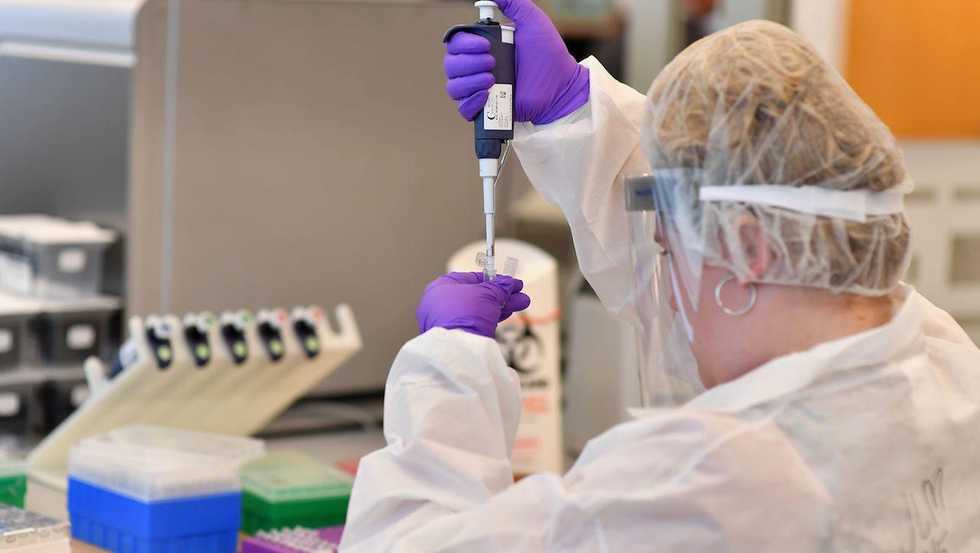
The findings of a study published on Thursday in the journal, Science, raised concerns about privacy implications associated with common DNA ancestry tests. (Angela Weiss/AFP/Getty Images)

Even if you've never submitted a sample to one of the popular online genealogy websites, there's still a pretty good chance your identity can be discovered using massive DNA databases — as long as you're an American with some European ancestry.
The findings of a study published on Thursday in the journal, Science, raised concerns about privacy implications associated with common DNA ancestry tests and the possibility of misusing publicly stored DNA information.
The team from MyHeritage and Columbia University analyzed 1.2 million DNA samples submitted to MyHeritage and another company. Using the samples, they found third cousins or closer for 60 percent of the test subjects who were mostly of mostly European descent.
Recently, police have utilized public DNA databases to help them solve crimes, according to the study's authors, but that information is also widely available to the public, which could pose risks.
“Between April to August 2018, at least 13 cases were reportedly solved by long-range familial searches,” the authors wrote.
"Most of these investigations focused on cold cases, for which decades of investigation failed to identify the offenders. Nonetheless, one case involved a crime from April 2018, suggesting that some law enforcement agencies have incorporated long-range familial DNA searches into active investigations."
That information coupled with public family trees with demographic information makes it easy to hone in on an individual.
“The family trees set a coordinate system, in which the DNA of each individual in these databases is like a beacon that illuminates hundreds of the individual’s relatives who are not in the database,” Yaniv Erlich, chief science officer of MyHeritage, said in a statement, according to NBC News.
“Therefore, even if a specific individual is not in these databases, a relative of theirs could be, which is enough to identify them," he added.
Earlier this year, DNA from a public database helped California police track down Joseph DeAngelo, who authorities believe to be the Golden State Killer and responsible for multiple murders committed during the 1970s and 1980s.
A distant cousin of the 72-year-old former police officer took a DNA test that helped investigators narrow down their list of suspects to DeAngelo.
"Genetic genealogy databases act like a GPS system for anonymous DNA,” Erlich said, NBC News reported.
Police lifted a DNA sample of DeAngelo from a tissue he tossed into a trash can, which they matched to samples taken from dozens of crime scenes.
DeAngelo has been charged with more than a dozen murders that had been cold cases for decades.
Those of purely African and Asian descent have a lower risk of having their DNA misused because fewer have submitted samples for sequencing and placed in a public database, according to the study.